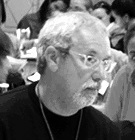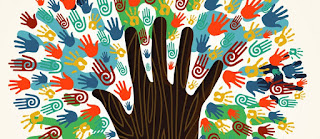 |
| Source: Experience Camps |
By Sam Piha
Experience Camps, founded in 2009 as a 501c3 organization, is a national, no-cost program for grieving children who have experienced the death of a parent, sibling or primary caregiver.
“We know that over 250,000 children are grieving the death of a primary caregiver due to Covid and that 6 million children will have experienced the death of a parent, sibling, or primary care giver by age 18.” - Liza Buck, Experience Camps
Because of the prevalent issue of childhood grief for afterschool participants, we interviewed Liza Buck, the Regional Program Manager for Experience Camps. Below are her responses to our questions.
Q: Can you briefly describe your program, Experience Camps?
A: Experience Camps provide no-cost, one-week sleep away camp programs to kids who have experienced the death of someone significant in their lives. We believe that every child deserves to live a life full of possibility and have seen camp "return" certain elements of childhood to them that may have been consumed by their grief.
 |
| Source: Experience Camps |
Q: What ages of youth do you serve and how are staff prepared and trained?
A: Our camps welcome kids who will be entering grade 4 through grade 12 - approximately ages 9-18. These campers spend the week with other kids who "get it," who get what it's like to be the only one in class who is grieving someone's death, and who understand that they feel an array of emotions, not always sadness. The bunk counselors who volunteer to staff our camps know how important it is to create that safe space that doesn't always exist outside of camp, and receive training in the months leading up to camp as well as an in-person orientation before the campers arrive. Trainings cover the history of Experience Camps, grief, inclusion, risk management, mandated reporting, and understanding developmental stages.
 |
| Source: Experience Camps |
Q: Have you seen an increase in the number of youth who are experiencing grief due to COVID?
A: Yes, we know that over 250,000 children are grieving the death of a primary caregiver due to Covid and that 6 million children will have experienced the death of a parent, sibling, or primary care giver by age 18. This means that 1 in 5 kids will grieve the death of someone by 18. Most of our campers are grieving the death of a parent, sibling, or primary caregiver.
Q: You are utilizing an online program called ExperienceCraft, a world in Minecraft built with and for grieving kids. Can you say more about this?
A: As far as we know, we have the first Minecraft server of its kind. It's a safe server which means that kids are unable to participate unless the server is open and monitored by staff. We partnered with Connected Camps to invite kids who have experienced grief to our server and Discord channel (also protected) on Friday, Saturday, and Sundays where they get to interact with peers in a virtual environment. There are different "worlds" within ExperienceCraft, including a creative world where kids can create endlessly and add to a memorial garden and not fear anyone destroying their creations since that feature is disabled in the creative world. It's another way for us to try and reach more kids who either do not want to or cannot attend physical camp. Learn more here.
 |
| Source: Experience Camps |
Q: Afterschool programs include a number of youth who are experiencing grief. Can you offer any advice or activities for afterschool workers to address the grief experienced by their youth?
A: Being there for the child can look different depending on the day and the kiddo you're showing up for. Some days it may look like being a physical presence that they know is there, others it may be intently listening to them as they talk about something they're interested in, and the best days will be when you ask about their person. When you do ask about their person, say their name, say the word "died" or "death," and ensure your face is conveying interest and not pity. Kids are extremely perceptive, and if they see us flinch, they're less likely to share. The more you listen (with your eyes and ears) the easier it will be to follow their lead on how much they want to talk. Again, what’s important is that they show up for these kids, and not just once, but consistently.
Q: I noted on your website that camps are held in venues across the country. If an afterschool worker wanted to refer youth to attend, are there certain requirements needed and how would they proceed?
A: A lot of campers are referred by teachers and after school staff or coaches! The best thing to do is introduce them to our website, and if they're interested, directing their caregiver to the online application. If they need assistance they can always reach out to us. Kids who have experienced the death of a parent, sibling, primary caregiver, or another significant figure in their life are eligible to apply and will complete an intake with us to see if camp is a good fit.
Q: Are there any resources to help the youth with transportation required to attend the camp?
A: Campers arrive at each of our six locations and twelve programs by buses chartered by Experience Camps, and each location has several bus stops to try and accommodate as many families as possible. However, we never want transportation to be a barrier so travel scholarships are also available through an application process.
 |
| Source: Experience Camps |
Q: Do you have any resources you would recommend to assist afterschool leaders in learning more about this work?
A: We have a list of resources, additional information and answers to any of your questions on our website.
MORE ABOUT…
Liza Buck (she/her) is the Regional Program Manager for Experience Camps. She has been a teacher, CAD counselor, and has been involved with Experience Camps since 2014, beginning as a bunk counselor and most recently operating as the Program Director for CalEx Girls. In addition to her teaching degrees, she is in the process of completing her MSW at the University of Maine. Liza has a passion for kids and mission-driven work which is why Experience Camps feels like “home.” When she’s not doing “the best work ever,” she is most likely outside with her dog or baking a batch of cookies.
Experience Camps, founded in 2009 as a 501c3, is a national, no-cost program for grieving children who have experienced the death of a parent, sibling or primary caregiver. Their one-week, overnight summer camps, year-round programs, and content help to reframe the experience of grief, and empower kids with the necessary coping skills to move forward with their lives. Through compassion, connection, and play, Experience Camps allows grieving children to embody a life full of hope and possibility.




























